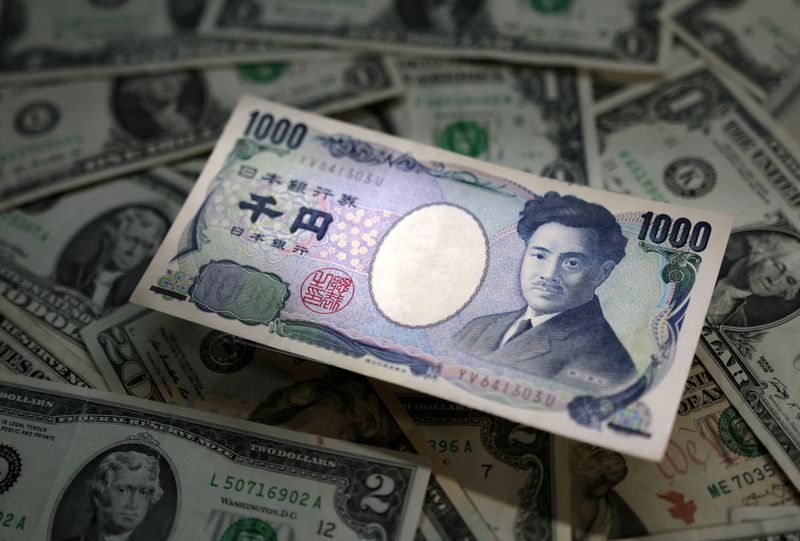By Rae Wee
SINGAPORE (Reuters) – The yen languished near a three-month trough on Friday and was headed for a fourth straight weekly loss, ahead of an election in Japan over the weekend that is likely to complicate the Bank of Japan’s (BOJ) policy normalisation plans.
In the broader market, the dollar retreated from its recent highs as it tracked U.S. Treasury yields lower, though it remained on course for yet another weekly gain.
Japanese voters will head to the polls on Sunday for a general election, with polls showing the ruling Liberal Democratic Party (LDP) could lose its long-held dominance.
The uncertainty and prospect of political instability could have implications for the BOJ’s rate hike path, as it tries to steer a smooth lift-off from near-zero interest rates. The central bank next meets on Oct. 30-31.
The yen was last 0.1% lower at 152 per dollar and was looking at a 1.5% loss for the week.
It had earlier gained a touch on the back of slightly better than expected Tokyo inflation data, though core consumer prices came in below the BOJ’s 2% target for the first time in five months.
“There is some suggestion that if the LDP loses its majority – which I gather, is a distinct possibility, then there’s a possibility that further muddies the water as far as BOJ policy normalisation is concerned,” said Ray Attrill, head of FX strategy at National Australia Bank (OTC:NABZY).
“If that is the result, then I suppose there’s some knee-jerk potential for further yen weakening if the market takes the view that this could certainly push the next rate rise well into next year, for example.”
The yen has fallen roughly 5.5% for the month thus far, setting it up for its worst monthly decline since April 2022.
The move lower in the yen, particularly as it has once again weakened past the key 150 per dollar level, has left traders on alert for any intervention from Japanese authorities to shore up the currency.
A senior Japanese finance ministry official said the country’s Finance Minister Katsunobu Kato and U.S. Treasury Secretary Janet Yellen discussed recent exchange-rate moves, among other topics, in a bilateral meeting held on Thursday.
DOLLAR DOMINANCE
The dollar’s rally came to a pause on Friday after it surged to a three-month high earlier this week, underpinned by tempered expectations of aggressive Federal Reserve rate cuts and as market bets for a possible return of Donald Trump as U.S. president ramp up.
Against the dollar, the euro last bought $1.08225, some distance away from its low of $1.076125 hit earlier this week.
Still, the single currency remained on track for a 0.4% weekly loss.
Data on Thursday showed euro zone business activity stalled again this month, though the contraction in Germany – Europe’s largest economy – was less steep than the previous month.
“Looking ahead for the euro zone as a whole, the short-term outlook remains grim,” said Nick Rees, senior FX market analyst at Monex Europe.
“Demand conditions remain weak, the labour market is beginning to unwind, and both price pressures and business confidence are falling.”
Sterling dipped 0.06% to $1.2969, but also edged away from a two-month trough of $1.2908 hit on Wednesday. It was headed for a 0.6% weekly fall.
Elsewhere, the Australian dollar eased 0.11% to $0.6634, while the New Zealand dollar edged 0.22% lower to $0.6003.
The two Antipodean currencies were set to lose roughly 1% each for the week, weighed down in part by a stronger dollar and as uncertainty over the upcoming U.S. election dampened risk appetite.
The dollar index last ticked up 0.04% to 104.09, after having scaled a roughly three-month high of 104.57 earlier in the week. It was eyeing a rise of 0.6% this week, which would mark a fourth straight week of gains.



